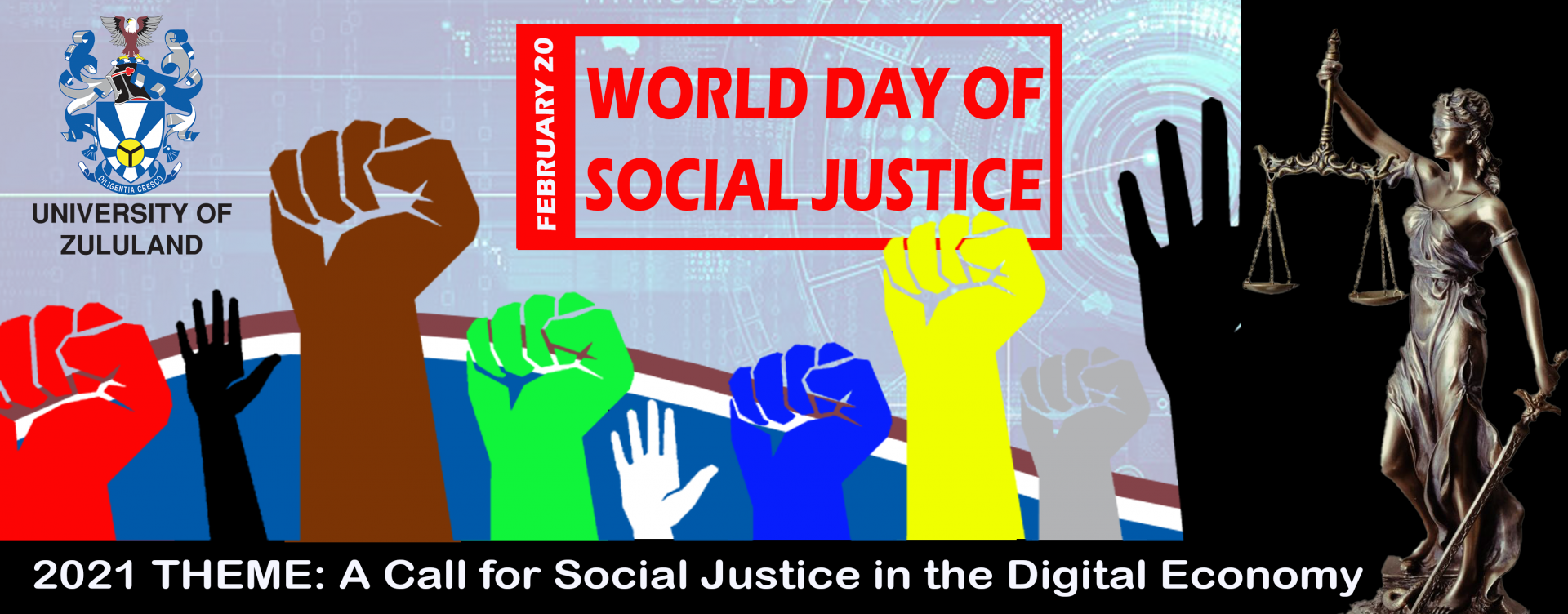Diminishing of inequalities to progress social justice

Since 2009, every 20 February has been the United Nations observance known as “World Day of Social Justice”. The purpose of the day is to focus on the plight of social injustice throughout the world and to press for improvements and solutions.
World Day of Social Justice recognises the need to promote efforts to tackle issues such as poverty, exclusion, employment, gender equity and access to social well-being and justice for all.
A core value of the United Nations (UN) is to promote development and human dignity through social justice. Nations are expected to work towards just outcomes for everyone through social protection, social dialogue, justice, employment and just rights. According to the UN, the theme for 2021 is “A Call for Social Justice in the Digital Economy” where the key focus is on the COVID-19 pandemic, resultant digital divide as well as the impact on labour opportunities. It is imperative that nations address common problems and seek solutions during these trying times. Everyone, no matter which part of the world they situated in, must be treated justly and offered access to opportunities so that all can benefit from economic growth.
“The pandemic has highlighted the disparity amongst access to resources amongst the poor and wealthy countries, the roll-out of vaccines being the perfect example where there is an urgent need to provide pandemic resources to developing countries in order to avoid global economic devastation. The pandemic respects neither countries, borders nor racial divides and no person, country nor economy is safe until the pandemic is brought to an end everywhere” according to Prof Iyer, a full professor in the Law Department and senior academic in the Faculty of Commerce, Administration and Law..
He also quoted Albert Einstein, “the world is a dangerous place, not because of those who do evil, but because of those who look on and do nothing”. “We can make a difference in the world if we speak up and defend the rights of the afflicted and destitute. The Covid-19 Global Pandemic has highlighted the fact that there is great inequality in the world.”
Prof Iyer also feels that it is very important to promote social justice in the classroom. Firstly, students need to feel safe and secure in the classroom setting. There should be no race or gender barriers to learning. Prioritise equity in the classroom. Different learning styles and disabilities must be accommodated. Students need to be taught about social justice issues so that they become responsible 21st century citizens. Students should be encouraged to engage in topics and projects that tackle social justice issues locally and globally.
Over the past decade, expansion in broadband connectivity, cloud computing, and data have led to the proliferation of digital platforms, which have penetrated a number of sectors of the economy and societies. Since early 2020, the consequences of the COVID-19 pandemic have led to remote working arrangements and allowed for the continuation of many business activities, further reinforcing the growth and impact of the digital economy. How we adapt to change in the 21st century will determine how successful we are in dealing with social justice issues going forward. The world as we know it will never be the same. The onus is on us as South Africans to embrace our differences and work together in addressing everyday challenges.














Leave a Reply